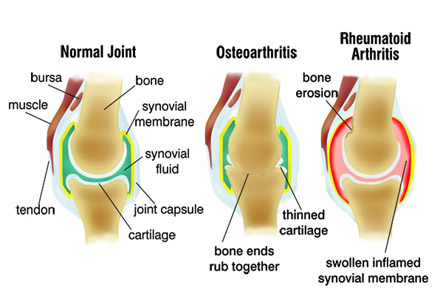Arthritis
Introduction
Stem cells are primitive cells in the body that have the capacity to become any cell. Stem cells and bone marrow cells have been used since 1968 in patients with blood cancers like leukemia, aplastic anemia, lymphomas such as Hodgkin’s disease, multiple myeloma and even in ovarian and breast cancers.
The biggest advantage stem cell injections seem to offer over more invasive arthritis remedies is a quicker, easier recovery.
Many of these stem cells can come from the cord blood or the blood in the umbilical cord that joins the baby to the mother in the womb. After birth the cord blood can be collected and processed to make stem cells into the desired cells. These cells can help in development of new blood vessels, increase the number of new cells.
Iranian scientists have moved to the forefront in embryonic stem cell research, according to a recent joint study by Harvard University and the Massachusetts Institute of Technology

Treatment
Stem cells are the only cells in the body able to morph into other types of specialized cells. When the patient’s own stem cells are injected into a damaged joint, they appear to transform into chondrocytes, the cells that go on to produce fresh cartilage. They also seem to amplify the body’s own natural repair efforts by accelerating healing, reducing inflammation, and preventing scarring and loss of function. According to some experts knees respond better to the treatment than hips.
The biggest advantage stem cell injections seem to offer over more invasive arthritis remedies is a quicker, easier recovery. Because the stem cells come from the patient’s own body in many cases, there’s little chance of infection or rejection.
A stem cell therapy for osteoarthritis is to be tested on patients in the UK for the first time. A year-long trial, funded by Arthritis Research UK, will mix stem cells with cartilage cells in the lab and inject them back into damaged knee joints. The new treatment could be an alternative to joint replacement surgery, experts hope.
Scientists from Keele University will study up to 70 people from the end of this year. The trial will be run at the Robert Jones and Agnes Hunt Orthopaedic Hospital in Oswestry, Shropshire as part of a five-year research programme.
Three treatments are being tested in a randomised trial of patients with osteoarthritis of the knee. Using keyhole surgery, a patient’s cartilage cells – also known as chondrocytes – and bone marrow stem cells will be removed and grown in a laboratory for three weeks. They will then be re-implanted separately in some patients, and mixed together in other patients, into the area of damaged or worn cartilage. Scientists will then test the effectiveness of all three types of cell therapy, based on the quality of the new cartilage formed over a period of 12 months.